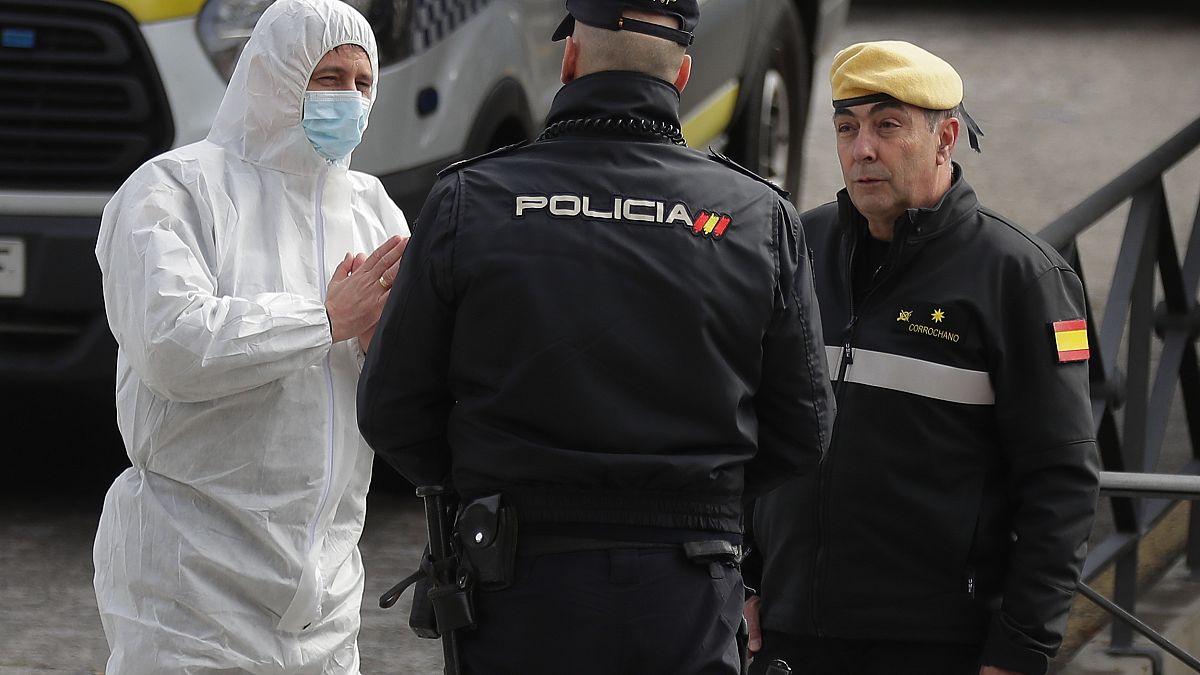The head of the law enforcement agency says thousands of fake medical items have been seized and warned against telephone fraud.
The COVID-19 pandemic has "sparked new crime trends", the head of Interpol told Euronews on Monday, warning that organised crime groups have adapted their activities to benefit from the global health crisis.
Jurgen Stock revealed to Euronews that police forces around the world have already seized counterfeited medical items, including "thousands of counterfeited substandard protective masks, so-called corona spray, corona medicine and substandard hand sanitiser".
There is currently no vaccine against the novel coronavirus and experts from the World Health Organisation (WHO) predict it it "still 12 to 18 months away".
The WHO has also stressed that more research is needed to conclusively determine whether certain drugs — including anti-malaria medicine — can fight off the deadly virus as advanced by some doctors around the world.
Health authorities have tentatively said that drugs to treat malaria could have an impact
The head of Interpol also flagged that other tactics used by organised crime groups include "criminal call centres".
"We have this new form of telephone fraud," he said, whereby "people are receiving telephone calls from somebody who is pretending that they are hospital officials.
"The story is a relative has fallen sick, needs money for medical treatment and they try to encourage people to provide money to ensure medical treatment," he added.
Watch Euronews' interview with Interpol's Jurgen Stock in the player above.
Cybercriminals also use the pandemic to spread malware by also claiming to be health officials and encouraging people to open attachments.
Last week, Interpol announced that 121 arrests had been made worldwide in a vast operation against the illicit online sales of medicines and medical products.
Police, customs and health regulatory authorities from 90 countries took part in the action, codenamed Operation Pangea XII, seizing potentially dangerous pharmaceuticals worth more than $14 million (€12.7 million).
By mid-March, telephone fraud and phishing campaigns had already resulted in monetary losses "as high as hundreds of thousands of dollars in a single case," the law enforcement agency also revealed.
"To date, Interpol has assisted with some 30 COVID-19 related fraud scam cases with links to Asia and Europe, leading to the blocking of 18 bank accounts and freezing of more than USD 730,000 (€661,000) in suspected fraudulent transactions," it said in a statement at the time.
